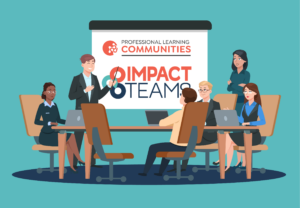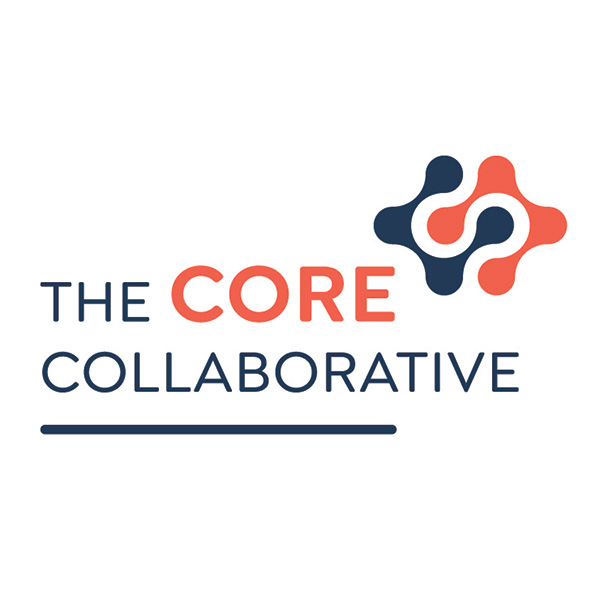Professional Learning Communities (PLCs) or Impact Teams are a powerful tool for advancing both teacher and learner agency with the aim of building a culture of efficacy. They provide a space for teachers and learners to collaborate, learn from each other, and make meaningful changes in their practice. Let’s explore what PLCs are, how they can advance teacher and learner agency, and some best practices for effective collaboration via action research.

What are Professional Learning Communities?
Impact Teams-PLCs are teams of educators who come together to learn and improve their practice. They can take many forms, from grade-level or subject-area teams to cross-disciplinary groups that focus on a specific issue or problem. The key to a successful PLC is that it is a collaborative effort where educators work together to develop shared goals, engage in regular job-embedded professional development, and engage in ongoing formative assessment of their work.
Benefits of Professional Learning Communities
Impact Teams-PLCs are an excellent way to advance teacher agency because they provide a space for educators to take ownership of their professional development. By collaborating with colleagues and engaging in ongoing formative assessment of their work, teachers are empowered to take control of their practice and make meaningful changes that improve student learning outcomes. When Impact Teams are done right, teachers have agency over their own professional learning that is intentionally aligned to a school’s continuous improvement goals.
Strengthening Self and Peer Assessment
One way that Impact Teams-PLCs advance teacher agency is through engaging learners and educators in self and peer assessment. Teachers in partnership with learners are encouraged to reflect on their own practice and identify areas where they can improve. The self assessment process allows educators and learners to take ownership of their own learning as they work towards their own goals.
Peer assessment is another way that Impact Teams-PLCs can advance teacher agency. By engaging in regular feedback sessions with colleagues, educators can receive constructive criticism and suggestions for improvement from those who know their content best. This process allows teachers to gain a better understanding of their own practice and identify areas where they can make improvements. In addition, students benefit from peer assessment too. Students receive feedback from each other so they take ownership of their learning too.
Activating Goal Setting and Reflection
Goal setting is a key component of Impact Teams-PLCs and an essential tool for advancing teacher agency. By setting specific, measurable, and achievable goals, educators can take control of their professional development and work towards improving student outcomes. Goals can be individual or shared, and they should be revisited regularly to ensure progress is being made.
Finally, reflection is a critical component of PLCs and a powerful tool for advancing teacher agency. By reflecting on their own practice and the feedback they receive from colleagues, educators can identify areas where they can improve and make meaningful changes that improve student learning outcomes.
Inquiry and Collaboration in Professional Learning Communities
Impact Teams leverage collaborative inquiry by using professional learning community protocols purposefully to solve puzzles of practice as they ensure quality implementation of core formative assessment practices anchored in asset based pedagogy: 1) co-construction of learning goals and success criteria 2) inclusive questioning 3) feedback including self and peer assessment 4) reflection 5) goal setting and 6) academic discourse.
When teams engage in ongoing research and evaluation of their work, educators can identify areas for improvement and make meaningful changes that improve student outcomes. This process requires a commitment to ongoing job-embedded professional development and a willingness to take risks and try new things. Teams of educators must work together to identify shared goals, develop targeted interventions, and engage in ongoing formative assessment of their work. Collaborative inquiry action research requires trust, respect, and a willingness to learn from others.
Wrapping Up
Impact Teams are a powerful tool for advancing both teacher and learner agency. By providing a space for educators and learners to collaborate, learn from each other, and make meaningful changes in their practice, Impact Teams empower educators and students to take control of their learning and make meaningful changes that improve learning outcomes for all.


